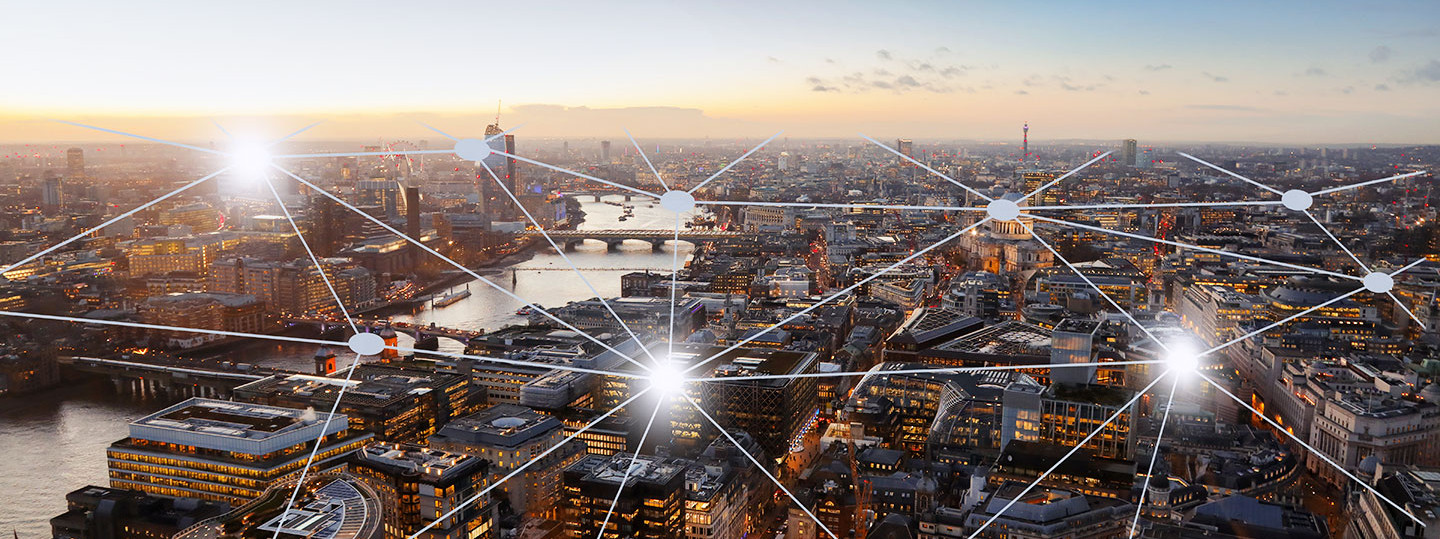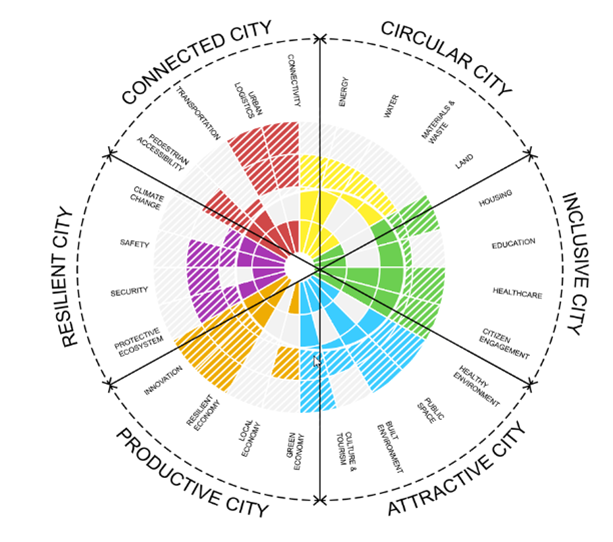
Smart solutions for cities
Smart lighting, smart neighborhoods, smart traffic planning, green tenant electricity and more: Digitalization offers many possibilities for making cities sustainable. Energy supply, buildings and mobility must be thought of together. We bring all the expertise to you in order to provide you with sound advice and to guide you on your way to the Smart City.
Your advantages with us as a partner
-
Simple and reliable method
to quickly determine the smart maturity level and areas for action with the Smart City Scan. -
Expertise in all areas that count
at the interfaces of buildings, energy and mobility -
Sound advice
on all Smart City topics by our specialists -
Forward-looking Solutions
for neighborhoods of the future
"Green, clean, healthy, well-organized, safe, affordable and open to co-creation – that is what citizens expect from a livable city. The Internet of Things, or IoT for short, opens up completely new possibilities for reducing CO2 emissions and improving the quality of life. Electricity and heat generation is also an important part of the Smart City as well as the local energy transition. "ENGIE is equally at home in energy management, technology and services - making us the ideal partner for you."
Steffi Mattern, Business Field Developer at ENGIE Germany
Smart City Scan
With the Smart City Scan, we offer municipalities that want to make their way to the Smart City a structured inventory of their own degree of "Smart" maturity. On this basis, our specialists can make an informed assessment of where you can best deploy your resources. For this we use the Smart City Scan developed by the ENGIE Group: Based on six dimensions with matching core questions, we get an overview of the actual situation and the possible areas of action. The Smart City Scan 360° distinguishes between infrastructural requirements and efficiency criteria. ENGIE has successfully tested the fact that this simple method leads to very accurate results in numerous cities.
Smart solutions for cities
Street lighting accounts for one third of the electricity consumption of a German city. In the short term, there is a lot of potential here to reduce CO2 emissions. At the same time, operators can reduce energy and operating costs – and reduce maintenance costs and increase the quality of light through intelligent management.
And lighting poles can do even more: The narrow-mesh lighting infrastructure is well suited as a backbone for the construction of an IoT network based on LoRaWAN or NB IoT. Poles equipped with transmitters receive and transmit a variety of information from their surroundings. Collected in a cloud, the data streams can be evaluated and used to optimize life in the city.
Whether it's information about air and water quality, noise levels, parking lot usage, or the fill level of a glass container – the possibilities are many. With the smart measurement results, operators can predict and regulate, observe and alert, monitor and invoice
Existing and newly built neighborhoods are an ideal experimental area for future-oriented, decentralized energy concepts. These can be, for example, local heating solutions. Heat pumps are highly efficient, CO2 neutral, low maintenance and quiet. Near-surface geothermal energy allows for easy construction of new green infrastructure.
With photovoltaics on the roofs, tenants get the chance to participate directly in the energy transition. In addition to energy storage, the interplay of different energy sources and consumers can be used effectively in the neighborhood. Using intelligent software generation and consumption can be controlled - including charging stations for e-cars and e-bikes. Numerous parameters such as the use of the parking areas can be monitored via sensors. Municipalities wishing to invest in the energy efficiency of neighborhoods can apply for a grant through the KfW program for urban energy renovation.
Green electricity is part of the self-image of a livable city. What is more obvious than using the roof surfaces for energy production in built-up areas? In many cases, public buildings are suitable for the installation of photovoltaic systems, thus visibly demonstrating the environmental awareness of the municipality.
Tenant electricity is an opportunity for people in municipalities and cities to actively participate in the energy transition. This not only promotes commitment to the environment, but also brings tangible cost advantages for tenants. For municipalities that do not have their own wind or solar projects, green long-term contracts (Power Purchase Agreements) are a way to purchase green energy.
Public utilities as operators of ICT infrastructure, district heating networks and charging infrastructure have a wealth of valuable information for a smart city approach. By using new radio technologies and an IoT platform, information from sensors, actuators and meters can be transported cost-effectively and solutions can be developed based on this information. Sensor-based object monitoring significantly improves maintenance and fault management of the largely underground neighborhood heating infrastructure with its routes and structures.
